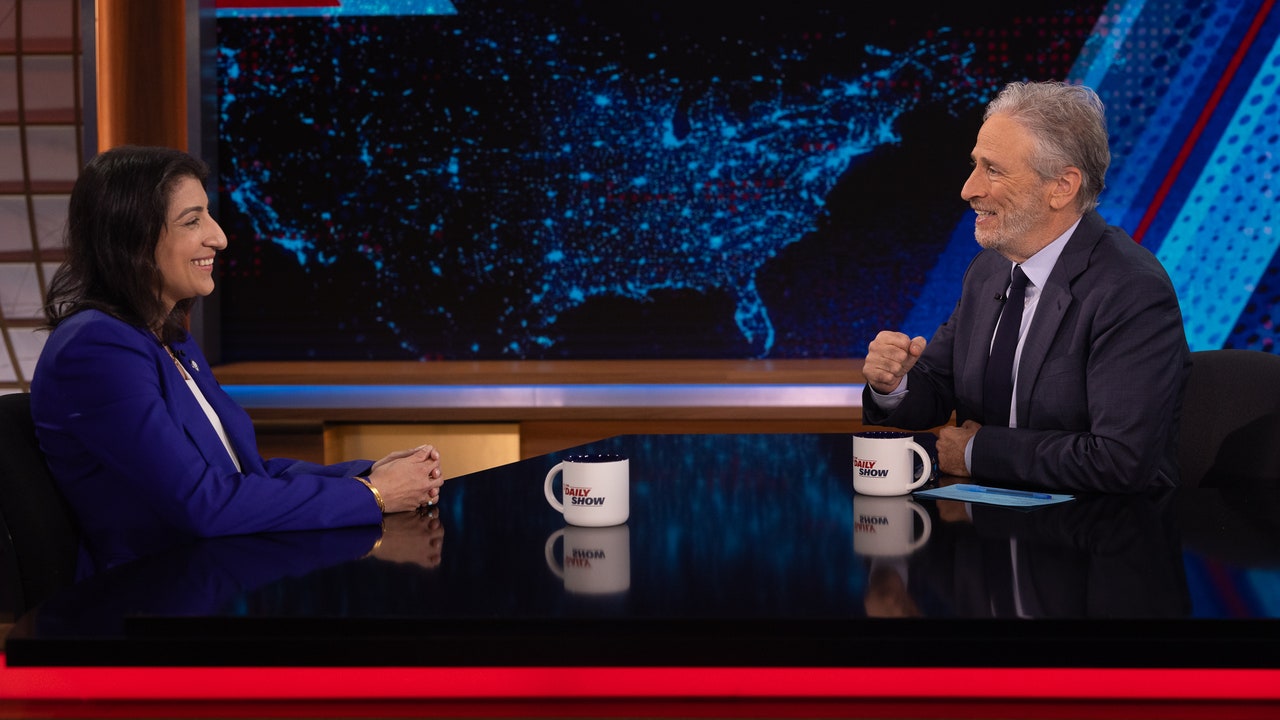- cross-posted to:
- [email protected]
- [email protected]
- cross-posted to:
- [email protected]
- [email protected]
This week, Jon Stewart devoted his edition of The Daily Show to tackling a topic that he claims his former bosses at Apple barred him from exploring. “I wanted to have you on a podcast and Apple asked us not to do it,” the late-night host said to his guest Monday night, Federal Trade Commission Chair Lina Khan, referencing the companion podcast to his former series, The Problem with Jon Stewart that ended last October. “They literally said, ‘Please don’t talk to her.’”
Stewart’s remarks arrive less than two weeks after the U.S. Justice Department sued Apple for exploiting its monopoly in the tech market and violating antitrust laws. The lawsuit highlights Apple’s “power over content creators and newspapers” and notes that the company’s conduct “even affects the flow of speech,” adding, “Apple is rapidly expanding its role as a TV and movie producer and has exercised that role to control content.”
After joking that Apple killed Khan’s potential appearance on the podcast because “I didn’t think they cared for you,” Stewart alleged that Apple also told him not to discuss artificial intelligence. “They wouldn’t let us do even that dumb thing we just did in the first act on AI,” he said, referring to a segment earlier in that episode on the “false promise” of that technology. Stewart then asked Khan: “What is that sensitivity? Why are they so afraid to even have these conversations out in the public sphere?”
Khan replied, “I think it just shows the danger of what happens when you concentrate so much power and so much decision making in a small number of companies.”



State owned news media sounds like a bad idea from communistic countries, but nevertheless, plenty of European countries have just that, and it’s noteworthy how it’s much less biased than the commercial outlets. The people pay the piper.
It actually works in democratic countries where the government is representative of the people, so that any single party can’t push their agenda to the media by laws. On the contrary it happens more often that the media is told to keep a straight line if they go too far in any direction.
It’s no wonder it doesn’t work in dictatorships, and I don’t think it would work in two party politics, but in European countries the state media is very likely the less biased one.
PBS exists 😶
**It’s not state owned.
Though the people do pay them, so I guess that’s the important part.
Also, NPR.
I knew I was forgetting one. But yes, a state ownd independent media would be nice. I’d be grateful just for reinstating the fairness doctrine at this point